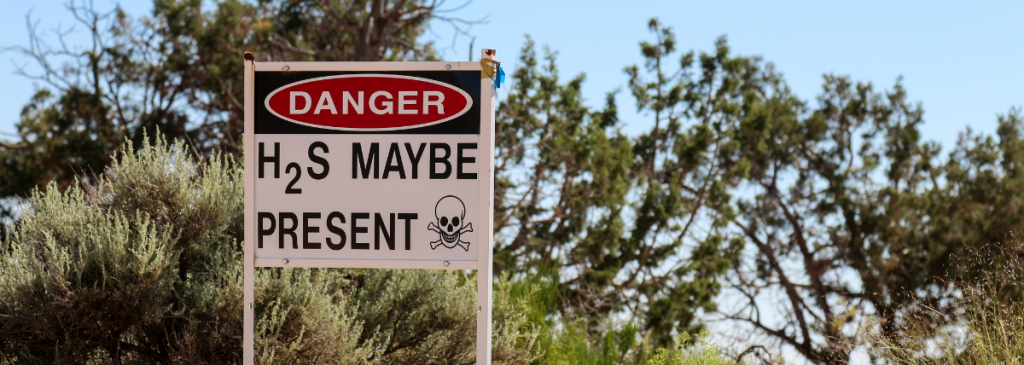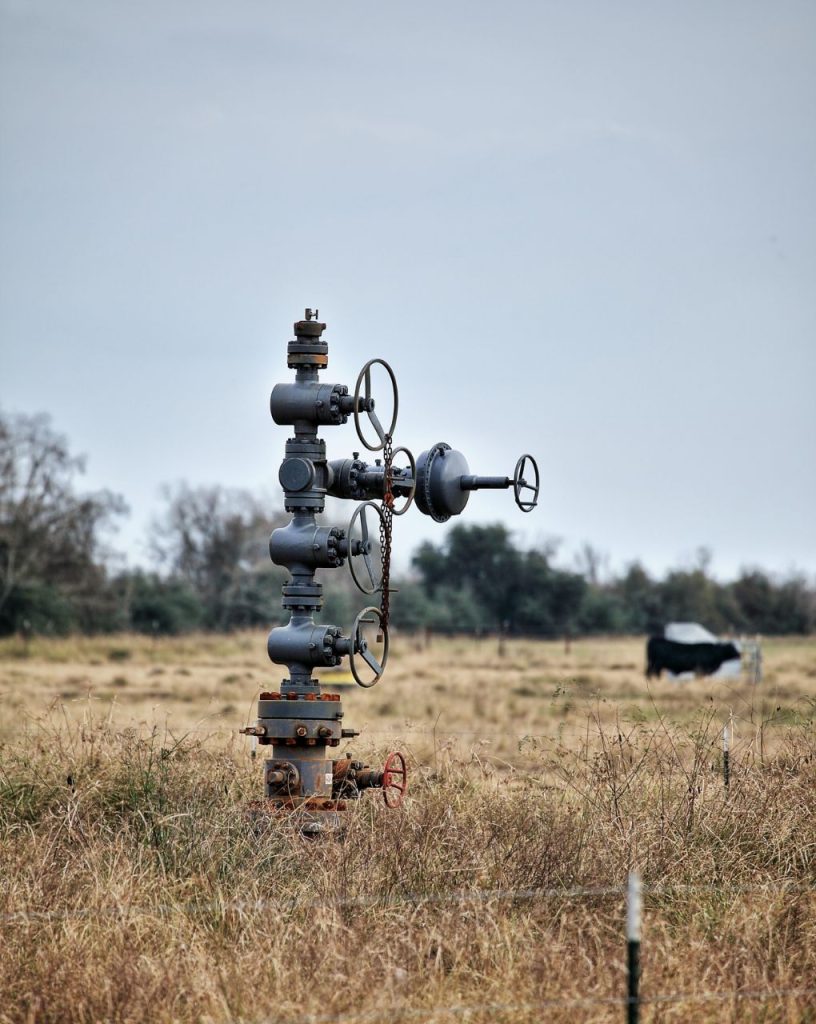- Home
- Health Topics
- Health Hazards
- Hydrogen Sulphide (H2S)
Hydrogen Sulphide (H2S)

Do you have questions about Hydrogen Sulphide (H2S)?
Humans are most likely to inhale H2S gas, when near a source. The general population will have likely had some exposure to hydrogen sulphide. Exposures by ingesting food or drink or by absorption through direct contact with skin can occur but are much less likely.
Hydrogen sulphide does not accumulate in the body as it is rapidly metabolized in the liver and excreted in the urine. Gas wells that are not properly maintained or decommissioned may release H2S; sometimes, well-drawn water will contain H2S.
People usually smell hydrogen sulphide even at very low concentrations in the air, ranging from 0.0005 to 0.3 parts per million (ppm). These levels in the air are not dangerous and will not cause negative health effects. It should be noted that there is no way to tell by smell alone if you are detecting low or high concentrations of hydrogen sulphide; in fact, concentrations around 100ppm will temporarily hinder your ability to smell the gas. You cannot rely on your nose to tell you how much hydrogen sulphide gas is present.
Hydrogen sulphide levels can change based on a number of factors such as fluctuations from the source (i.e. a gas well), or from changes in weather patterns (i.e. wind direction).
Exposure to low concentrations (10-100 ppm) of hydrogen sulfide may cause:
- Irritation to the eyes, nose, or throat
- Difficulty in breathing for some people with asthma
- Headaches
- Poor memory
- Tiredness
- Balance problems
Brief exposures to high concentrations of hydrogen sulfide (greater than 500 ppm) can cause a loss of consciousness. In most cases, the person will likely regain consciousness without any other effects. However, in some people, there may be permanent or long-term effects such as headaches, poor attention span, poor memory, and poor motor function. In very high concentrations, death is possible due to respiratory paralysis.
The ‘rotten egg’ smell of hydrogen sulphide and its accompanying ‘sulpher water’ taste occurs in some water sources at low concentrations. Even at these low levels, water will become aesthetically unpleasant and most users will avoid drinking the water at that time. The odor may be more noticeable when you run hot water as heat forces the gas into the air. This may cause the odor to be especially offensive when showering. If there is an ongoing issue with hydrogen sulphide in your water supply, there are a variety of water treatment devices capable of removing it. Consult a licensed plumber or a water treatment company to determine what water treatment device will best suit your needs.
Water samples submitted to the HNHU are only sampled for bacteria at the Public Health Lab. Chemical sampling can be done for a fee through a licensed private lab. For more information about well water testing, the HNHU at 519-426-6170.
If you notice a rotten egg scent and suspect hydrogen sulphide:
- Near your home, call the Spills Action Centre of the Ministry of Environment at 416.325.3000 or 1-800-268-6060 (toll-free)
- Inside your home, call your local fire department — In Norfolk County │ In Haldimand County
- The Abandoned Works Program is a program offered by the Ministry of Natural Resources, to help Ontarians properly plug wells on their property. Landowners with gas wells can contact the Ministry to determine if their well qualifies for the program. Please visit https://www.ontario.ca/page/abandoned-works-program for more information.
- The MAPSH (Monitoring Methane, Air pollutants, Soil quality and Human health) study aims to: assess health symptoms experienced by participants in relation to indoor air quality and the presence of abandoned oil and gas wells. This study involves air monitoring within homes that may be impacted by and abandoned gas or oil well. H2S monitoring specifically can be included. For more information about the study and/or becoming a participant. Contact the MAPSH study team at 647-601-4641 or send an e-mail to [email protected]
- If you smell H2S (rotten eggs)near your home and suspect a leaking gas well, contact The Spills Action Centre (SAC) of the Ministry of the Environment, Conservation and Parks at 416-325-3000 or (toll-free) 1-800-268-6060 or (TYY) 1-855-889-5775
CAUTION: Confined SpacesSmall, enclosed spaces such as a cistern, septic tank, some farming and industrial equipment, well (dug / bored wells) or a well pit, may be considered Hazardous Confined Spaces and should never be entered by anyone other than a trained professional. For more information on Hazardous Confined Spaces please visit: |


